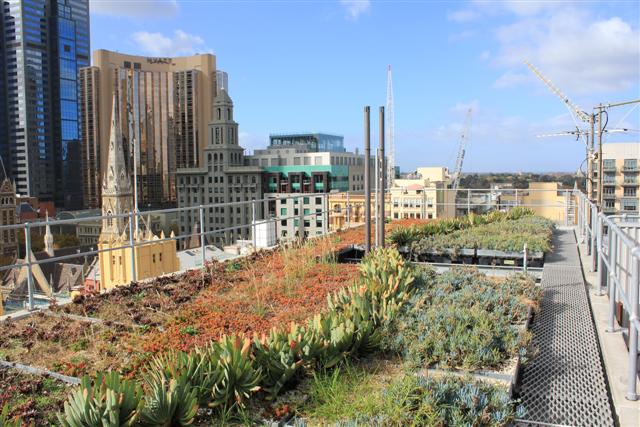Cities for climate change

Citizens often want greener policies, but why don’t cities listen?
Published 11 December 2015
The science of climate change makes it clear: we should reduce our emissions to near zero some time during the 21st century.
Meanwhile economic growth is improving the welfare of billions of people around the world. Increased energy use has historically been the inseparable twin of economic growth. It appears we face a choice: human welfare or Russian roulette with the climate. Is there a way out of the trap?
Energy production is certainly ubiquitous in the modern economy. It is reasonable to think that including the cost of externalities like future climate change will slow growth. By how much depends on the ability of people and businesses to innovate in response to these new costs.
Whatever the costs are, we are left to argue how they should be spread — among nations and among sectors of the economy. This means choosing winners and losers.

Unpalatable as it may be, these decisions cannot be avoided. Failure comes when inability to agree means we do little or nothing.
In some cases everyone can win.
There is low-hanging fruit in improving energy efficiency where the return on investment is considerable and rapid.
Action has not been taken already only because of ignorance, inertia or the cost of capital. In these cases government mandates can be economically efficient, pushing people to do what is in their interests but which they “hadn’t got around to”.
Cost of capital can be reduced with partnerships with various levels of government since these can borrow more cheaply. This doesn’t necessarily cost the government money up-front; it means that they assume some of the risk.

Beyond these economic win-wins is a much larger palette of possible actions which cost money but we might like to take anyway. A prime example is the redesign of our cities.
Good public transport means cleaner, healthier, quieter cities. It also means fewer cars. Cities with more trees and shared open spaces have healthier populations. They also need less cooling. More paths for walking and cycling lower health costs, but also result in less driving and hence less emissions. Good policy must consider the interplay of all these aspects.
Research usually avoids them in the interests of finding a system simple enough to understand.
The Clean Air and Urban Landscapes Hub is tasked to provide policy-relevant research. This forces us to embrace rather than eschew these interplays. We are researching urban air quality, urban greening, urban infrastructure/planning and urban biodiversity. Investing in any one of these is likely to bring benefits to many of them. They also bring a carbon dividend.
Surveys overwhelmingly show that citizens want these kinds of changes. Yet a quick glance at growth patterns of modern cities in the developed and developing world shows that most large cities are not heading in this direction.
Why do we get this dissonance between what we want and what we get?
One reason is the commons problem. All the above benefits take collective decisions and pooling of resources, usually through taxation of some form.
Most of us believe we could improve our own situation more if we spent that money on ourselves. If we consider our own situation in isolation, that is probably true. But unless we democratically, strategically agree to pool these resources no one gets these benefits.
A second problem is that cities are not in general products of design. They arise from many individual decisions: where to live, where to locate a business, where to build a new development. These decisions are taken with respect to the existing form of the city. Planning tries to influence those decisions. The resulting clash between individual and collective good is played out in newspapers, tribunals and parliaments.
Lessons for researchers?
There are two main lessons.
First, the ideal city design is only useful as a benchmark. It can tell us how far short of perfection any real city falls, but the real task is to find solutions that can survive the huge multi-player game that is a real city.
Second, this is not really an economic problem but a political one. Researchers can analyse different forms of individual incentives: paying polluters to stop (direct action) or charging them for continuing (carbon price). Neither will drive decisions about shared resources to nudge our cities in good directions.
That is the task of politics in its highest form: collective decisions obeyed in the common good.
Banner Image: Flickr
